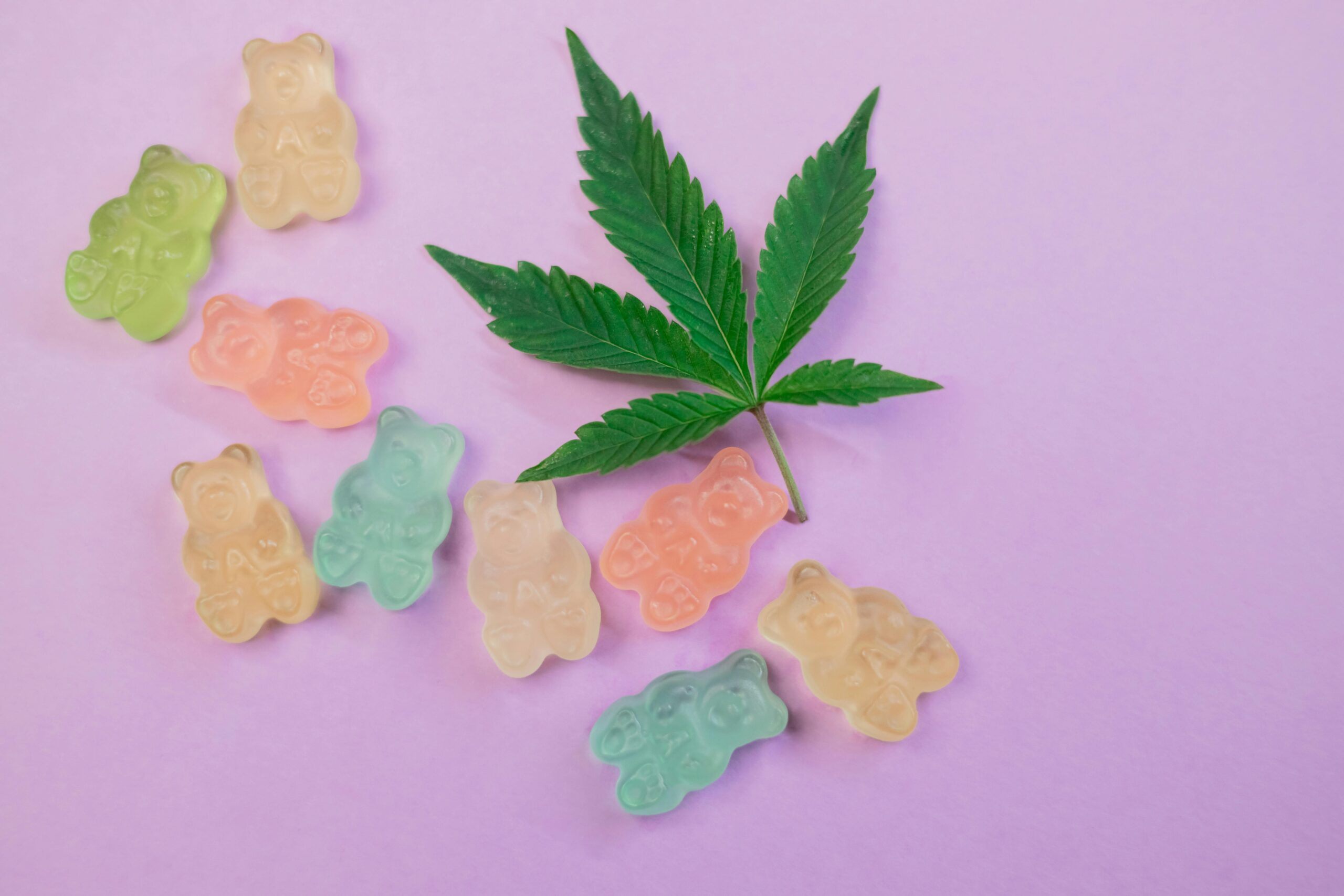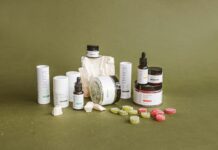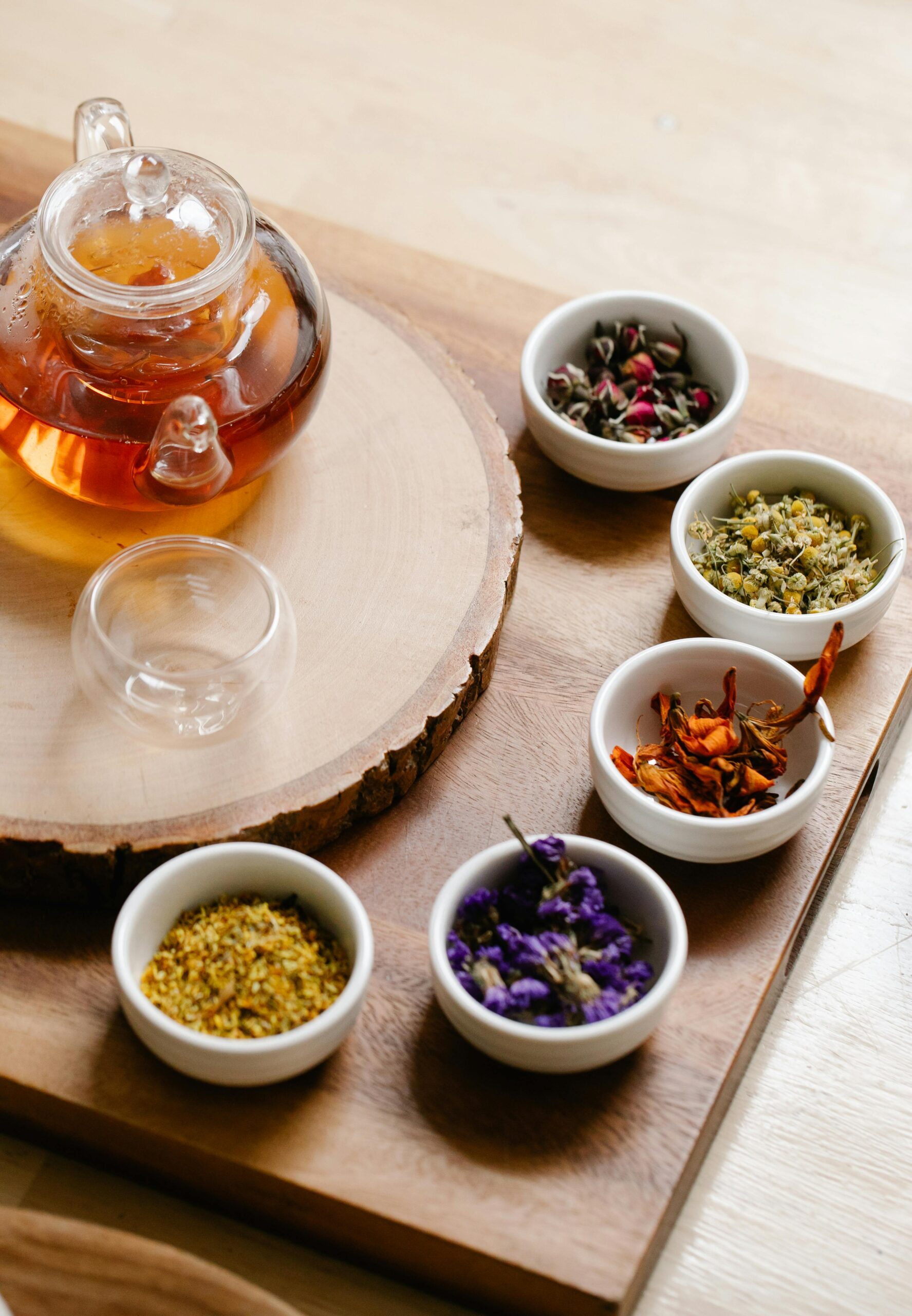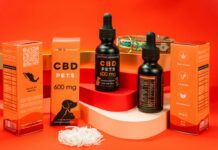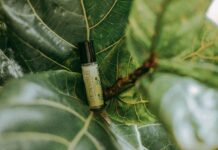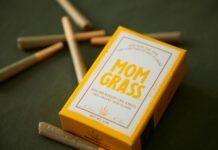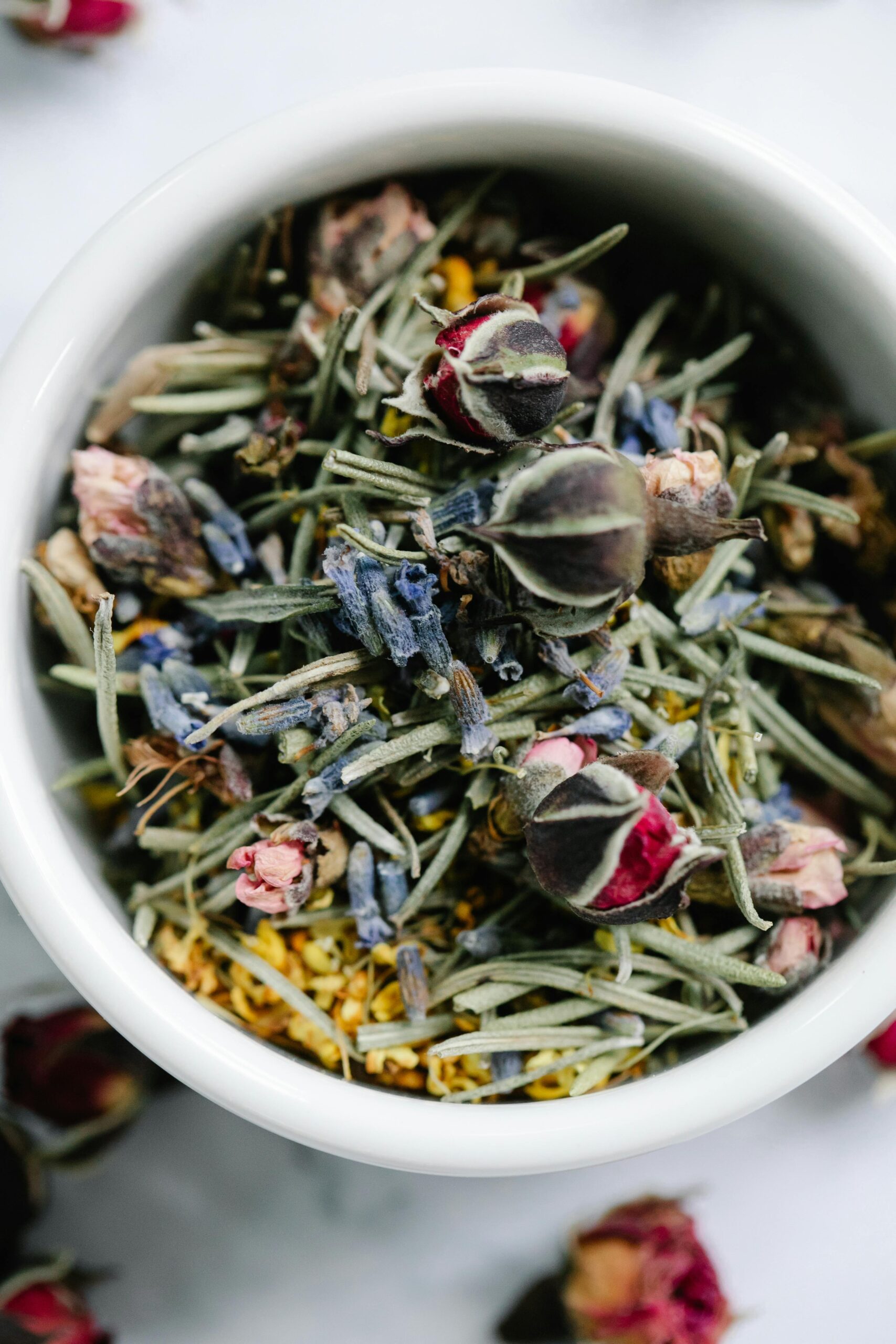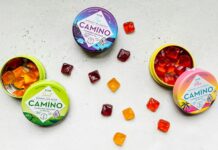CBD On Drug Test: What You Need To Know Before Taking One
Are you curious about CBD on drug test results and how it might affect your chances of passing? Many people today are turning to CBD products for wellness benefits, but there’s a growing concern about whether consuming CBD can lead to a positive drug test. This article dives deep into the truth behind does CBD show up on drug tests, and what precautions you should take before your next screening. If you’ve ever wondered, “Can I fail a drug test because of CBD?” or “What’s the risk of CBD causing a false positive?”—keep reading to uncover everything you need to know!
With the booming popularity of CBD oils, gummies, and tinctures, it’s easy to assume they are completely safe and won’t interfere with drug screenings. But the reality might surprise you! Many CBD products contain trace amounts of THC, the psychoactive compound in cannabis, which is often the target of most drug tests. So, can full-spectrum CBD make you fail a drug test? What about broad-spectrum or CBD isolate? These questions have become hot topics in the wellness community, especially for employees, athletes, and anyone subject to routine drug testing.
Before you consume your next dose of CBD, it’s critical to understand how different types of CBD products affect drug test outcomes. This guide will explore the key differences between THC-free CBD, full-spectrum CBD, and how drug tests detect cannabinoids in your system. Plus, we’ll share expert tips on minimizing the risk of a false positive and ensuring your CBD use stays worry-free. Stay tuned to discover the surprising facts about CBD and drug testing—your career and peace of mind might depend on it!
How Does CBD Affect Drug Test Results? Uncover the Truth Behind Common Myths
How Does CBD Affect Drug Test Results? Uncover the Truth Behind Common Myths
In recent years, CBD has become really popular as a natural remedy for various health issues, from anxiety to chronic pain. But despite its growing acceptance, there’s still lots of confusion about how CBD interacts with drug tests. Many people wonder, “Does CBD show up on a drug test?” or “Can CBD make me fail a drug test?” These questions arise because drug tests usually screen for substances related to cannabis, but CBD itself is not psychoactive like THC. However, the reality is a bit more complicated than it sounds.
What Is CBD and How Is It Different From THC?
CBD, or cannabidiol, is one of the many compounds found in the cannabis plant. Unlike THC (tetrahydrocannabinol), which is the main psychoactive ingredient making people “high,” CBD doesn’t cause intoxication. Because of this, many people think CBD is safe to consume even if they have a drug test coming up. But drug tests usually look for THC or its metabolites, not CBD itself.
Historically, cannabis and hemp have been used for medicinal purposes for thousands of years. But only recently, in the last decade or so, has CBD been isolated and marketed widely. The rise of hemp-derived CBD products after the 2018 Farm Bill in the United States made it more available. Hemp must contain less than 0.3% THC, so legally, CBD products should not cause a positive drug test. But this is where things get tricky.
How Drug Tests Work: What Are They Really Looking For?
Most drug tests used by employers or law enforcement are designed to detect THC metabolites, specifically THC-COOH, which remains in the body for days or weeks after use. These tests usually don’t detect CBD directly. But since some CBD products may contain trace amounts of THC (due to extraction methods or labeling inaccuracies), it’s possible to test positive if you consume enough of these products.
Common types of drug tests include:
- Urine tests: Most common, detects THC metabolites.
- Blood tests: Detects THC and CBD, but used less often.
- Saliva tests: Detect recent use of THC.
- Hair tests: Detects drug use over a longer period (months).
Because CBD itself doesn’t metabolize into THC metabolites, it shouldn’t cause a positive drug test result. But, if there is THC in your CBD product, then the risk increases.
Common Myths About CBD and Drug Tests
There are many myths floating around about CBD and drug testing. Let’s debunk some of the most common ones:
Myth: CBD will make you fail a drug test.
Truth: Pure CBD, especially isolate, doesn’t produce THC metabolites, so it won’t cause a positive test. However, full-spectrum CBD products can contain small THC amounts, which might accumulate in the body.
Myth: All CBD products are THC-free.
Truth: Not all CBD products are created equal. Some are labeled as “THC-free” but still contain minor THC traces because of poor manufacturing or inaccurate labeling.
Myth: Taking a small amount of CBD is always safe before a drug test.
Truth: Even small doses of full-spectrum CBD can contain enough THC to build up in your system over time, especially if you take it daily.
What You Need To Know Before Taking CBD and Facing a Drug Test
If you have a drug test coming and want to use CBD, here are some important things to keep in mind:
Choose CBD isolate or broad-spectrum products: These types usually have no THC or only trace amounts, reducing the risk of testing positive.
Buy from reputable brands: Look for third-party lab tests that confirm the THC content and purity of the CBD product.
Understand dosage and frequency: Taking large doses or using CBD daily can increase the chance of THC accumulation.
Know the timing of the drug test: THC metabolites can stay in your body for several weeks, so taking CBD products close to your test date might be risky if they contain THC.
Consider your metabolism and body fat: THC is fat-soluble and stored in fat cells, so people with higher body fat percentages may retain THC metabolites longer.
Quick Comparison Table: Types of CBD and Risk of Positive Drug Test
| CBD Type | THC Content | Risk of Positive Drug Test | Notes |
|---|---|---|---|
| CBD Isolate | 0% | Very Low | Pure CBD, no THC detected |
| Broad-Spectrum CBD | Trace or 0% | Low | Contains other cannabinoids, no THC ideally |
| Full-Spectrum CBD | Up to 0.3% legally | Moderate to High | Contains THC, risk depends on dose/frequency |
Top 5 Things You Must Know About CBD and Drug Testing Accuracy
CBD has become a popular natural remedy for many people seeking relief from anxiety, pain, and sleep issues. But if you live in New York or anywhere else, and you’re worried about how CBD might affect drug testing, you are not alone. Many folks wonder about the accuracy of drug tests when CBD products are involved. It’s a confusing topic, with lots of myths and facts mixed in. So, let’s dive into the top 5 things you must know about CBD and drug testing accuracy, and what you need to know before taking a drug test if you use CBD.
1. CBD Itself Does Not Usually Show Up on Standard Drug Tests
Most drug tests designed for employment or legal reasons look for THC (tetrahydrocannabinol), the psychoactive compound in cannabis, not CBD (cannabidiol). This means that pure CBD, theoretically, won’t cause you to fail a drug test. But here’s the catch: many CBD products contain trace amounts of THC. Even small amounts can build up in your system over time.
- Standard urine tests detect THC metabolites, not CBD.
- Blood and saliva tests also focus on THC presence.
- A pure CBD isolate product, with no THC, is less likely to cause a positive result.
But, don’t get too comfortable. Some CBD products are labeled “THC-free” but might still have tiny THC traces — sometimes enough to trigger a test.
2. Full-Spectrum CBD Products Contain THC and Can Affect Drug Tests
Full-spectrum CBD oils and tinctures include a range of cannabinoids, including THC, usually under 0.3% to comply with legal limits. This amount seems low, but daily use of full-spectrum CBD can cause THC metabolites to accumulate in your body, especially if you take high doses. Over time, this can result in a positive drug test.
Comparison of CBD product types and their THC content:
| Product Type | Typical THC Content | Drug Test Risk |
|---|---|---|
| CBD Isolate | 0% | Very Low |
| Broad-Spectrum CBD | Non-detectable/Trace | Low to Moderate |
| Full-Spectrum CBD | Up to 0.3% legally allowed | Moderate to High |
If you want to avoid testing positive, it’s safer to stick with CBD isolate or broad-spectrum products.
3. Drug Test Accuracy Can Be Affected by Sensitivity and Cutoff Levels
Drug tests vary in how sensitive they are and what levels of THC metabolites they consider a “positive.” Some tests have low cutoff levels, meaning they can detect very small amounts of THC metabolites. This increases the chance of false positives if you use CBD products with any THC. Others use higher thresholds, which might not flag small traces.
Here’s what you should know about test sensitivity:
- Workplace tests often use a 50 ng/mL cutoff for THC metabolites.
- Some law enforcement or court-ordered tests use a 20 ng/mL cutoff, more sensitive.
- Home drug tests can vary widely in accuracy and cutoff levels.
Because of these differences, it’s unpredictable how your CBD use might affect the result without knowing which test you’re facing.
4. How Long Does CBD and THC Stay in Your System?
Even though CBD itself is not usually tested for, its interaction with THC and your body’s metabolism matters. THC metabolites can stay in your body for days or weeks, depending on several factors:
- Frequency of use: Regular users accumulate more THC metabolites.
- Dosage: Higher doses increase THC buildup.
- Body fat: THC is fat-soluble, stored in fat cells longer.
- Metabolism: Faster metabolism clears THC quicker.
- Type of test: Urine tests detect THC metabolites longer than blood or saliva tests.
Typical detection windows for THC metabolites in urine tests:
- Occasional users: up to 3 days.
- Moderate users: up to 7–14 days.
- Heavy users: up to 30 days or more.
So, if your CBD product contains THC, and you use it daily, it can linger and cause a positive test result several weeks after you stop.
5. Practical Tips Before Taking a Drug Test If You Use CBD
If you have a drug test coming up and are using CBD, there are some practical steps you can take to reduce the risk of testing positive:
- Verify the product label carefully. Choose third-party tested CBD isolate or broad-spectrum products with verified zero THC.
- Stop using CBD products at least 1–2 weeks before the test, especially if using full-spectrum.
- Drink plenty of water to help flush your system, but don’t overdo it as excessive water can dilute your urine and cause test issues.
- Be honest with your employer or testing authority if allowed. Some workplaces are becoming more understanding about CBD use.
- Consider asking for a more specific test that
Can Full-Spectrum CBD Products Cause a Positive Drug Test? Expert Insights Revealed
Can Full-Spectrum CBD Products Cause a Positive Drug Test? Expert Insights Revealed
In recent years, CBD products have been widely popular, especially in places like New York where natural health trends are booming. But many people still wonder about the safety of using full-spectrum CBD, especially when it comes to drug tests. Can full-spectrum CBD products cause you to fail a drug test? The answer isn’t simple and it depends on several factors, so let’s dive into what you really need to know before taking one.
What is Full-Spectrum CBD?
First, it’s important to understand what full-spectrum CBD exactly means. CBD, or cannabidiol, comes from the cannabis plant, but it does not have the psychoactive effects like THC (tetrahydrocannabinol). Full-spectrum CBD products contain a variety of cannabinoids, terpenes, and other compounds found in the cannabis plant, including trace amounts of THC. This is different from broad-spectrum or isolate CBD, which either remove THC or contain only pure CBD.
The presence of THC in full-spectrum CBD is typically less than 0.3%, which is very low and legal in many regions including New York. But even tiny amounts of THC can build up in your system over time, leading to concerns about drug testing.
How Drug Tests Work: THC is the Target
Most workplace or legal drug tests focus on detecting THC metabolites, specifically THC-COOH, instead of CBD. This is because CBD itself is not considered an intoxicant or illegal substance. The tests look for the presence of THC metabolites in urine, blood, or hair samples.
- Urine tests: Most common, detects THC metabolites for up to 30 days depending on usage.
- Blood tests: Detect THC for a shorter time, usually a few hours to a couple days.
- Hair tests: Can detect THC usage for months, but less commonly used.
If full-spectrum CBD products contain trace THC, they theoretically can cause a positive result on a drug test. But the chances vary greatly depending on the amount and frequency of CBD use.
Why Full-Spectrum CBD Might Trigger a Positive Result
Here are some reasons why full-spectrum CBD could cause a positive drug test:
- THC Content: Even if labeled under 0.3%, some products might have higher amounts due to poor manufacturing or lack of regulation.
- Cumulative Use: Frequent use of full-spectrum CBD leads to THC building up in fat cells, increasing metabolite levels.
- Individual Metabolism: Everyone metabolizes cannabinoids differently; some people might retain metabolites longer.
- Test Sensitivity: Some tests have lower thresholds and can detect very tiny amounts of THC metabolites.
Comparing Full-Spectrum, Broad-Spectrum, and Isolate CBD for Drug Tests
| Type of CBD | THC Content | Drug Test Risk | Notes |
|---|---|---|---|
| Full-Spectrum CBD | Up to 0.3% THC | Moderate to High | Contains all cannabinoids, including THC. |
| Broad-Spectrum CBD | 0% THC | Low | THC removed, but other cannabinoids present. |
| CBD Isolate | 0% THC | Very Low to None | Pure CBD, no other cannabinoids. |
If you want to avoid any risk of a positive drug test, broad-spectrum or CBD isolate products are safer choices because they contain no THC.
Real-Life Examples and Expert Opinions
Experts in the cannabis and drug testing fields have shared insights on this topic. Dr. Jane Thompson, a cannabis researcher, notes, “Full-spectrum CBD products can indeed lead to positive drug tests if used regularly due to THC metabolite accumulation.” On the other hand, many users report taking full-spectrum CBD daily without ever failing a drug test, which shows individual differences matter a lot.
Consider this: A New York-based employee used full-spectrum CBD oil twice a day for two months. During a random urine drug test, the employee received a positive result for THC, even though they never used marijuana. The company confirmed the positive was due to CBD oil, but unfortunately, the employee had to face consequences. This story highlights the risks involved.
Tips If You Are Taking Full-Spectrum CBD and Expect a Drug Test
- Check product labels carefully and buy from reputable brands with third-party lab testing.
- Consider switching to broad-spectrum or isolate CBD if you have an upcoming drug test.
- Avoid using full-spectrum CBD at least 30 days prior to the test to reduce THC buildup.
- Inform your employer or testing authority if you use CBD products, but don’t assume they will accept it.
- Know your body and metabolism; some people clear THC metabolites faster than others.
Historical Context: Why Drug Tests Focus on THC
Drug tests were created primarily to detect illegal drug use, and marijuana was classified as a controlled substance for decades. THC is
CBD Isolate vs. Full-Spectrum: Which One Is Safer Before a Drug Test?
CBD Isolate vs. Full-Spectrum: Which One Is Safer Before a Drug Test?
If you live in New York and interested in natural health remedies, you probably heard a lot about CBD products. But, there is often confusion about the differences between CBD isolate and full-spectrum CBD, especially if you worried about passing a drug test. Many people wonder which one is safer to use before they have to take a drug screening.
What is CBD Isolate and Full-Spectrum CBD?
CBD isolate is the purest form of cannabidiol, extracted from the hemp plant and processed to remove all other compounds, including THC, terpenes, and flavonoids. It usually comes as a white powder or crystal. Because it contains only CBD, many assume it’s the safest choice if drug testing is a concern.
On the other hand, full-spectrum CBD contains all cannabinoids found in the hemp plant, including trace amounts of THC (usually less than 0.3%). It also includes terpenes, flavonoids, and other compounds believed to work synergistically for better health benefits — this effect is called the “entourage effect.” But with THC presence, even in small amounts, it raises questions about drug tests.
Why People Worry About CBD on Drug Tests
Drug tests, especially workplace ones, typically look for THC or its metabolites, not CBD. THC is the psychoactive compound in cannabis responsible for the “high,” and it stays in the body longer than CBD. However, some CBD products may contain trace THC because of how they are made, leading to possible positive drug test results.
Here is why it matters:
- THC metabolites can stay in your system for days or weeks, depending on usage frequency.
- Some drug tests are highly sensitive and may detect very low THC levels.
- Mislabeling or contamination in CBD products can increase THC levels unexpectedly.
CBD Isolate vs. Full-Spectrum: Safety Before a Drug Test
If you are worried about passing a drug test, CBD isolate is generally considered the safer option. Because it contains no THC, the risk of testing positive for THC is significantly lower. But it’s not 100% guaranteed, since some isolates might have trace THC if not properly purified.
Full-spectrum CBD carries a higher risk. Even if the THC content is legally below 0.3%, consuming enough full-spectrum CBD products can lead to accumulation of THC metabolites, which could trigger a positive drug test result. It depends on how much you take, how often, and your body’s metabolism.
Key Differences Between CBD Isolate and Full-Spectrum CBD Before Drug Test
| Feature | CBD Isolate | Full-Spectrum CBD |
|---|---|---|
| THC Content | 0% (pure CBD) | Up to 0.3% THC |
| Drug Test Risk | Very Low | Moderate to High |
| Entourage Effect | No | Yes |
| Product Purity | Usually high | Varies |
| Health Benefits | Targeted to CBD effects | Broader due to multiple compounds |
| Legal Status (US) | Generally legal everywhere | Legal if THC < 0.3% |
What You Need to Know About CBD on Drug Tests
- Not all drug tests are the same: Some tests are designed to detect THC only, while others may also look for CBD or other cannabinoids.
- Dosage matters: Taking large amounts of full-spectrum CBD products may increase the chance of THC buildup in your system.
- Product quality varies: Unregulated or low-quality CBD products may have higher THC levels than advertised.
- Timing is important: THC metabolites can remain detectable for days or weeks after ingestion.
- Individual differences: Metabolism, body fat percentage, hydration, and frequency of use affect how long THC stays in the system.
Practical Tips Before Taking a Drug Test
If you have a drug test coming up and use CBD products, consider the following:
- Choose CBD Isolate Products: Opt for products labeled as “pure CBD isolate” with third-party lab testing confirming zero THC content.
- Check Lab Reports: Always review COAs (Certificates of Analysis) provided by the manufacturer to verify cannabinoid profiles.
- Avoid Full-Spectrum CBD: If passing the drug test is critical, steer clear of full-spectrum or broad-spectrum products containing any THC.
- Limit Usage: Stop using any CBD products several days or weeks before the test, depending on how frequently you use them.
- Consult Your Employer or Test Administrator: Some workplaces may have specific policies or testing methods.
- Be Aware of Cross-Contamination: Sometimes, hemp seed oils or other supplements can contain trace THC.
Historical Context of CBD and Drug Testing
CBD’s rise in popularity started around the 2010s, especially after the
What Are the Legal Implications of CBD Use When Facing Workplace Drug Screening?
What Are the Legal Implications of CBD Use When Facing Workplace Drug Screening?
The use of CBD has grown rapidly in recent years, especially in places like New York where natural health solutions gain popularity. Many people turn to CBD for its potential benefits, like reducing anxiety or managing pain. But one big question often comes up: what happens if you take CBD and then face a workplace drug screening? This topic is complex and sometimes confusing, because laws and testing methods vary widely. Also, the distinction between CBD and other cannabis compounds is not always clear to employers or testing agencies. Here’s what you need to know before using CBD if you have a job that requires drug testing.
Understanding CBD and Its Legal Status
CBD, or cannabidiol, is a compound found in cannabis plants. Unlike THC (tetrahydrocannabinol), CBD does not cause a “high” feeling. Because of this, many states, including New York, have legalized CBD products derived from hemp, which contain less than 0.3% THC. However, the federal laws still create some gray areas. The 2018 Farm Bill federally legalized hemp-derived CBD, but some restrictions apply.
- CBD products must have less than 0.3% THC to be legal federally.
- States might have their own regulations that can differ.
- Some CBD products may contain higher THC levels than advertised.
This legal patchwork means that even if you buy CBD legally, there is a risk of THC presence in the product.
How Workplace Drug Tests Detect Substances
Most workplace drug screenings don’t look specifically for CBD. Instead, they test for THC and its metabolites, which remain in the body longer. Here’s how it works:
- Urine tests are the most common and detect THC metabolites.
- Blood and saliva tests are less common but can detect recent use.
- Hair follicle tests can detect drug use over a longer period.
Because most drug tests focus on THC, pure CBD should not trigger a positive result. But many CBD products are not pure and might have trace amounts of THC, which can accumulate in your system. This is especially true if you use CBD daily or in high doses.
Legal Risks If CBD Causes a Positive Drug Test
If a drug test comes back positive for THC, the legal outcomes vary depending on your employer and local laws. Some considerations include:
- Employers often have zero-tolerance policies for THC.
- A positive drug test can lead to disciplinary action, including termination.
- Certain industries, like transportation or federal jobs, have stricter rules.
- Some states have protections for medical marijuana users but may not extend these to CBD users.
In New York, medical marijuana users have some legal protections, but recreational cannabis laws are still evolving. If your CBD product contains THC, even unknowingly, you could face workplace consequences.
Practical Tips To Avoid Problems With CBD and Drug Testing
To minimize risks, consider these practical steps before using CBD when you expect a drug screening:
- Choose CBD products carefully. Look for third-party lab tests that confirm THC content is below 0.3% or undetectable.
- Avoid full-spectrum CBD oils if you want to reduce THC exposure; broad-spectrum or CBD isolate products typically have no THC.
- Understand your company’s drug testing policy. Some employers test randomly or post-accident, others only pre-employment.
- Give your body time to clear THC. THC metabolites can remain detectable for days or weeks, depending on use.
- Consider discussing CBD use with your employer if allowed, especially if you use it for medical reasons.
Comparison Table: Types of CBD and Risk of Positive Drug Test
| CBD Type | THC Content | Risk of Positive Drug Test | Notes |
|---|---|---|---|
| Full-spectrum CBD | Up to 0.3% or slightly more | Higher | Contains all cannabinoids, including THC. |
| Broad-spectrum CBD | 0% (ideally) | Lower | THC removed, but may contain trace amounts. |
| CBD Isolate | 0% | Lowest | Pure CBD, no THC or other cannabinoids. |
Historical Context of CBD and Drug Testing
CBD’s rise in popularity is quite recent compared to traditional drug testing practices. Drug tests have been around since the 1980s, mainly developed to detect illegal drug use like marijuana, cocaine, and opioids. CBD was not widely known or used then, so tests were not designed to detect it. As CBD became mainstream, especially after the 2018 Farm Bill, confusion increased about how drug tests interact with CBD products.
Employers often rely on older testing protocols that only look for THC metabolites. This means CBD itself is not flagged, but any THC present in your CBD product might cause a positive result. There’s ongoing discussion in the medical
Conclusion
In conclusion, understanding the relationship between CBD and drug tests is crucial for anyone using or considering CBD products. While CBD itself is not typically screened for in standard drug tests, many CBD products contain trace amounts of THC, the psychoactive compound that drug tests are designed to detect. This means that using full-spectrum or improperly labeled CBD products can potentially lead to a positive drug test result. To minimize this risk, opting for broad-spectrum or CBD isolate products that are third-party tested for THC content is highly recommended. Additionally, being aware of the laws and regulations in your area, as well as your workplace policies, can help you make informed decisions. Ultimately, staying informed and choosing high-quality CBD products ensures you can enjoy the benefits of CBD without compromising your employment or legal standing. If you’re considering CBD use, take the time to research and select trusted brands to safeguard your health and peace of mind.
